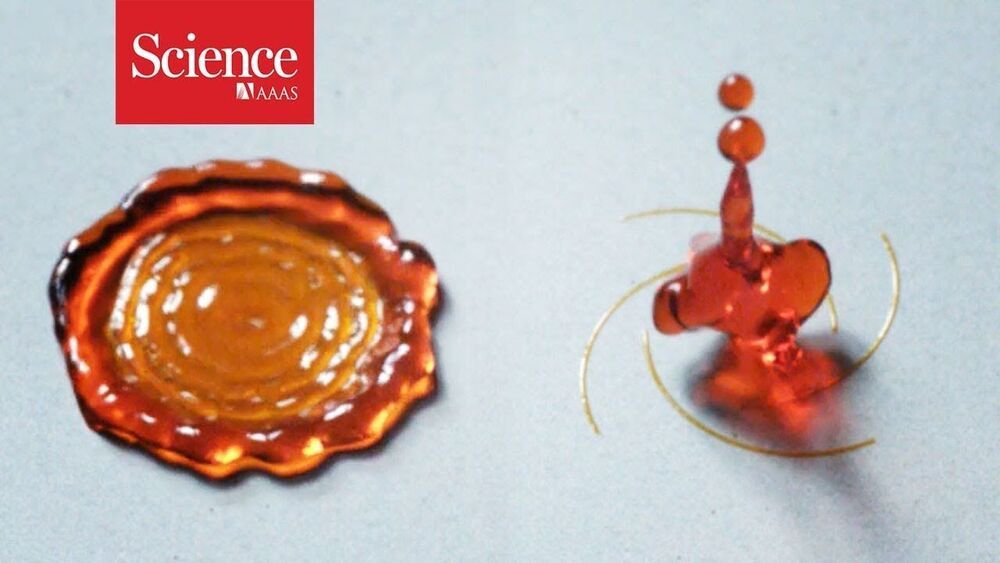Falling drops usually make a splash, but these drops do the twist. Researchers have created surfaces that can make droplets spin and whirl at more than 7300 revolutions per minute when they rebound.
To make the water droplets spin, researchers first had to make sure they didn’t wet the surface they fell on—otherwise, they’d just splash. The researchers did this by coating alumina plates with a fluorinated nonstick coating, similar to those found in nonstick cooking pans. Next, they masked some regions of the surface and shone ultraviolet (UV) light on the entire plate. The regions exposed to the UV became highly “wettable,” meaning water touching those regions spread out immediately rather than bouncing back up. The team created several designs of the wettable regions, including one with spiral arms radiating out from a center, much like a pinwheel.
As the droplet bounds up from the patterned surface, the portions encountering the wettable spirals stick to the surface, whereas the parts of the droplet in contact with the water-repelling surface rebound immediately. This creates a set of unbalanced forces, pulling on the droplet more in some parts than in others, twisting it, the team reports today in.
